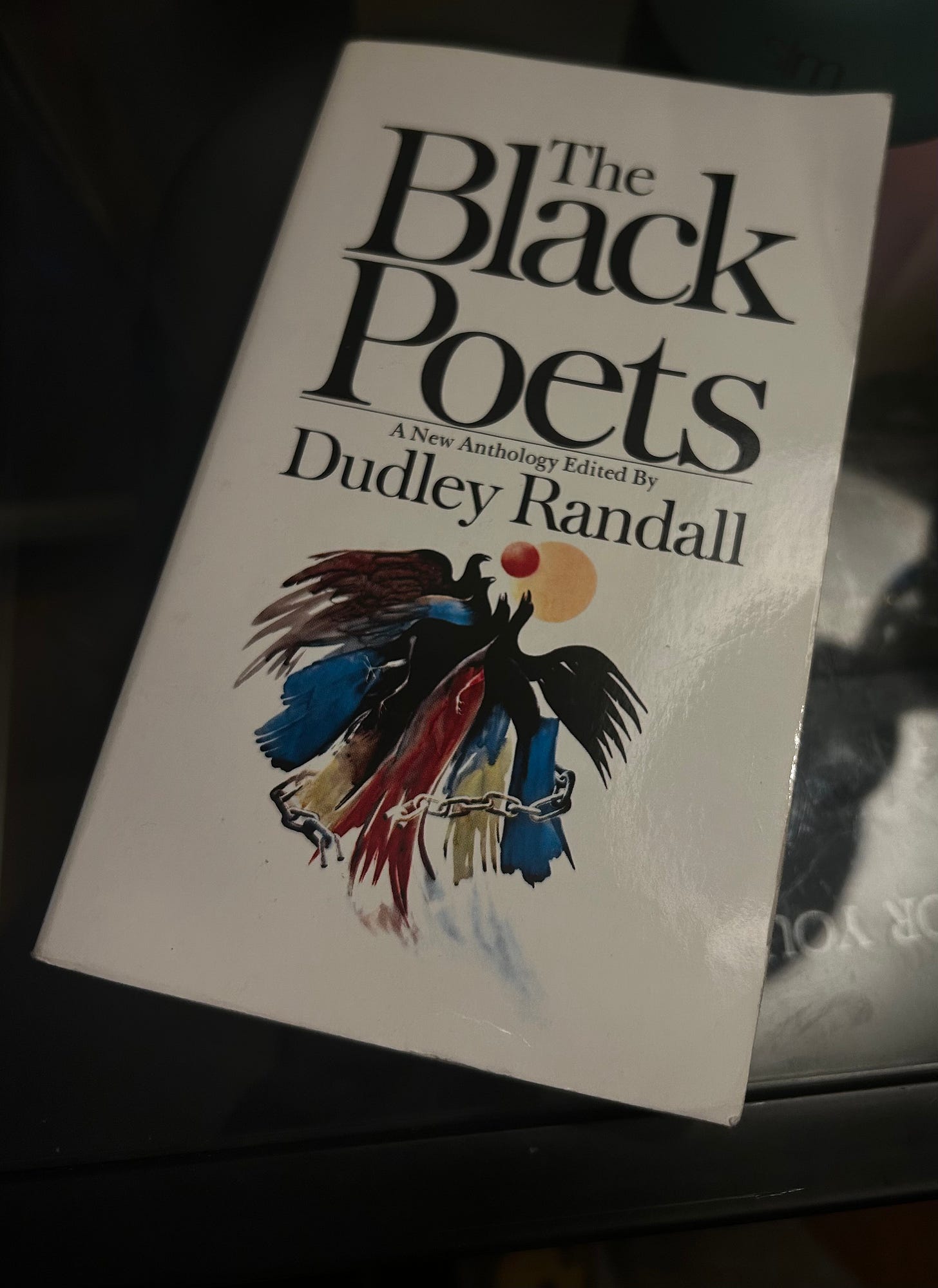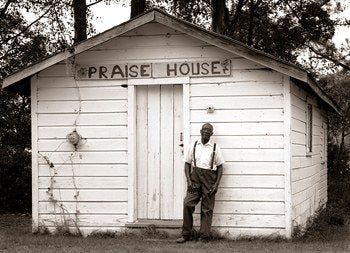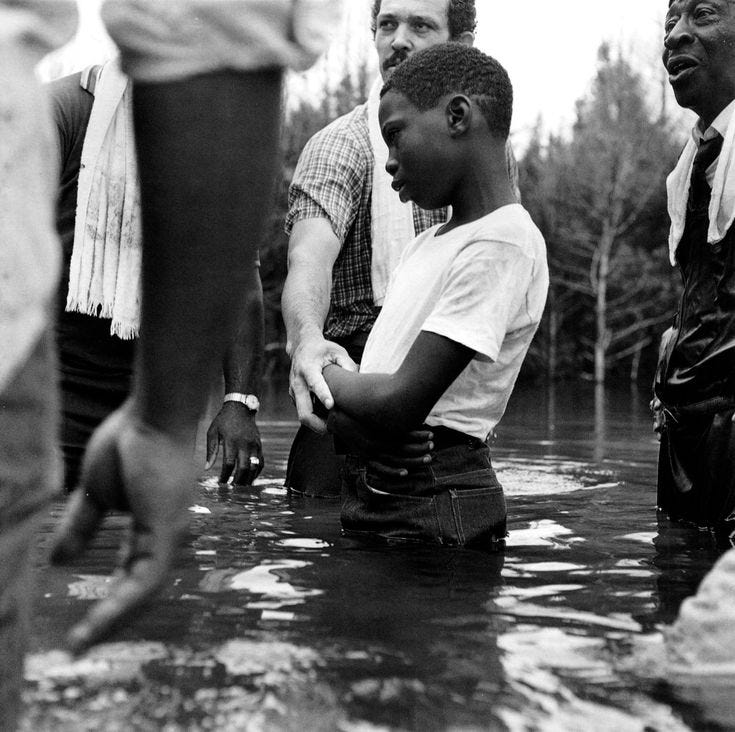After Christmas, I take a trip to my local bookstore to purchase a new book; this has always been a tradition of mine at the top of each year. I wandered aimlessly through the isles, gently touching the spines of each book within my reach. I wasn’t looking for anything in particular, just something to pique my interest on those cold and rainy nights. Truth be told, I’m not much of a ‘reader’ I never was. Unlike my peers, I never won an award for reading the most books over the summer, and I never had much to say about the trending titles. I just love the idea of having large amounts of information and wonder at my fingertips, and somewhere between the slabs of sweet oakwood, something is waiting to be read by me.
Roughly two years ago, I ran across a poetry anthology titled 1‘The Black Poets’. This anthology is comprised of tons of works from eighteenth-century negro spirituals to literary works from legendary poets such as Langston Hughes, Maya Angelou, and Nikki Giovanni.
After thumbing through the book, I noticed the lyrics to the Morning Song (Give Me Jesus) by Antonie Bradford off of his EP ‘Even In The Dark’ (which can be found here):
What I know now is that this song is an African American spiritual titled ‘Give Me Jesus’. This prompted me to research and educate myself on African American worship music.
The birth of the black church:
2When Christianity was introduced to African Americans, the Bible was used as a tool of oppression by slave masters. Black slaves were often forced to go to church with their masters, where they taught a whitewashed version of the gospel. But in a true act of rebellion, slaves throughout the Antebellum South would hold their own church services within their slave quarters, creating a thriving and seemingly “invisible” church community. Enslaved folks in small groups would read the Bible together, share stories, and pray together unbeknownst to their slave masters.
So, what are African American Spirituals?
3African American Spirituals are religious folksongs characterized by the struggle and enslavement of the African American people of the southern United States in the decades prior to the abolishment of slavery in the 1860s. Enslaved individuals call these folksongs ‘spirituals’ as they are a form of praise and thanksgiving to properly honor God, as instructed by the apostle Paul in the book of Ephesians chapter 5.
“speaking to yourselves in psalms and hymns and spiritual songs, singing and making melody in your heart to the Lord;” -Ephesians 5:19
Praise houses
Amongst the “invisible churches” created by enslaved people, there were also secret worship services in praise houses or outdoor bush meetings. These secret worship meetings among slaves blended traditional African dance and secular worship practices with their newfound Christian faith. During bush meetings, enslaved folks would sing these spirituals utilizing a call-and-response style with lots of movement and handclapping. For the sake of this article, I will not get into the specifics of the bush meetings, but I am well aware of its influence on traditional church practices.
No one knows sorrow like Jesus, because He paid it all for us. (Isaiah 53:4-5)
It always fascinates me how God can make a way out of no way for His people, and yes, I said it… His people because we are all God’s children. The Apostle Paul talks about this in the book of Ephesians 2:11-19.
“For through him we both have access by one Spirit unto the Father. 19 Now therefore ye are no more strangers and foreigners, but fellowcitizens with the saints, and of the household of God;”
In conclusion…
This month, I will be exploring the intersection between African American history, faith, and music. If you want to learn more about today’s topic, I’ve left my resources listed down below.
Blessings,
Tajanae 🤎
https://www.amazon.com/Black-Poets-Dudley-Randall/dp/0553275631/ref=asc_df_0553275631/?tag=hyprod-20&linkCode=df0&hvadid=693674918124&hvpos=&hvnetw=g&hvrand=17261326196145164928&hvpone=&hvptwo=&hvqmt=&hvdev=c&hvdvcmdl=&hvlocint=&hvlocphy=9003193&hvtargid=pla-488031369494&psc=1&mcid=05d268252f2032c694014c17c3e41992&tag=hyprod-20&linkCode=df0&hvadid=693674918124&hvpos=&hvnetw=g&hvrand=17261326196145164928&hvpone=&hvptwo=&hvqmt=&hvdev=c&hvdvcmdl=&hvlocint=&hvlocphy=9003193&hvtargid=pla-488031369494&psc=1
Ebersohl, Courtney. “Religion and Resistance in Enslaved Communities.” Virginia Center for Civil War Studies, Virginia Tech, Sept. 2017, civilwar.vt.edu/religion-and-resistance-in-enslaved-communities/#:~:text=Many%20enslavers%20required%20African%20Americans,(Raboteau%2C%20Slave%20Religion).
African American Spirituals. Web.. Retrieved from the Library of Congress, <www.loc.gov/item/ihas.200197495/>








